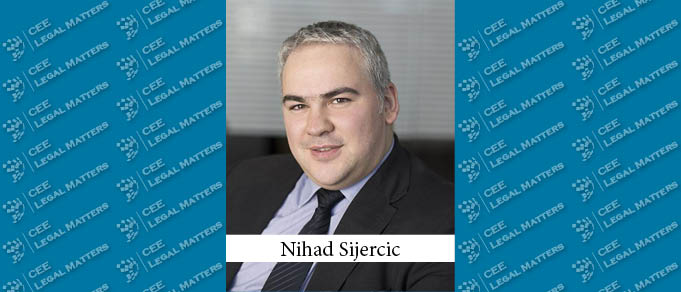There is an interesting legal tool in the Competition Law of Bosnia and Herzegovina (originally adopted in 2005), that is seldom seen in other jurisdictions. Per the legal framework, the governing body of the local competition authority, the Competition Council, consists of six members appointed in order to reflect the complex ethnic structure of the country: two Bosnians, two Croats, and two Serbs.
In order to ensure that ethnic interest is protected, the local competition law has a specific decision-making tool: the “ethnic veto.” Specifically, for any decision to be adopted, at least one member of each ethnicity needs to be in favor. If both members appointed from the same ethnic group are against, a decision cannot be rendered, irrespective of the procedure undertaken up to that point or the facts in question. Usually, ethnic considerations have little to do with ensuring a level playing field and market competition; but in Bosnia, an ethnic veto can effectively override an antitrust enforcement.
The European Commission, in its opinion on Bosnia and Herzegovina’s May 2019 application for membership in the European Union, explicitly underlined this structure as problematic to the state’s accession aspirations. The EC pointed to the Competition Council as one of the administrative bodies that operates “on the basis of ethnic decision-making procedures, in which at least one representative from each constituent people needs to support a decision for it to be valid,” in concluding that this is “neither compatible with the [the Stabilisation and Association Agreement] nor with the obligations resulting from EU membership.” As a result, the EC recommended that Bosnian decision-makers “ensure that all administrative bodies entrusted with implementing the acquis are based only upon professionalism and eliminate veto rights in their decision-making, in compliance with the acquis.”
Indeed, the ethnic veto has been a serious cause of concern, as in numerous high-profile cases, whether involving abuse of dominance or restrictive agreements, the Competition Council failed to act due to its exercise. In a recent case, even a procedural decision on evidence collection was deemed to run afoul of a critical national interest, although it was mandated by the competent court. The Bosnian judiciary has in the past annulled “vetoed” decisions as depriving interested parties of their right to a fair trial, but this does not seem to have lessened its use. Considering the EC’s clear remarks, this mechanism seems to draw Bosnia further away from EU accession, a stated priority for many political actors.
Indeed, competition law is intended to be impartial and not related to ethnic, national, or religious interest; market competition and free trade does not (or at least, should not) care about the ethnicity of an undertaking. While legitimate concerns of specific stakeholders and the broader effects of the decisions are routinely used to scrutinize competition law-related cases, an independent enforcer should not get a free pass based on an undefined, ethnically-based deliberation mechanism, but needs to ground its decisions on solid legal and economic analysis. A certain act, on balance, ultimately either will or will not be beneficial for market competition, and it is difficult enough for regulators to confidently predict the future effects of their actions. But with an ethnic veto, the authority is sending a message that, although a certain behavior might infringe competition law, it should not be sanctioned since it is in the interest not even of the state but of a specific ethnicity. Arguments based on the “raison d’etat” ultimately never work well, and are more likely to breed resentment than smooth issues over.
Where the veto will go is difficult to say for now. In June, 2020 the Bosnian presidency initiated activities to harmonize the local legal framework with the recommendations of the EC. Furthermore, the Bosnian lawmaking process is not entirely famous for its efficiency. While it can reasonably be expected that reorganization of the Competition Council will be a hotly debated topic, one can only speculate on the potential competition infringements which might go unpunished in the name of (a) people. Vox populi, vox dei.
By Nihad Sijercic, Partner, attorney at law in cooperation with Karanovic & Partners
This Article was originally published in Issue 7.8 of the CEE Legal Matters Magazine. If you would like to receive a hard copy of the magazine, you can subscribe here.
